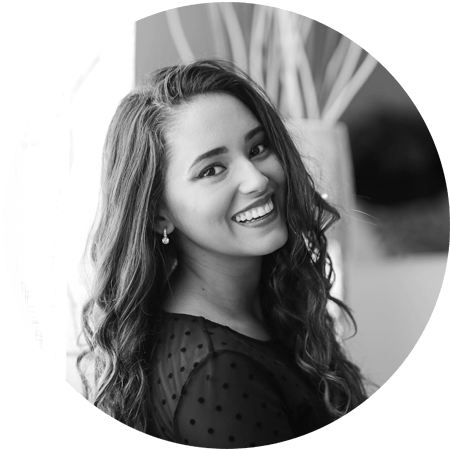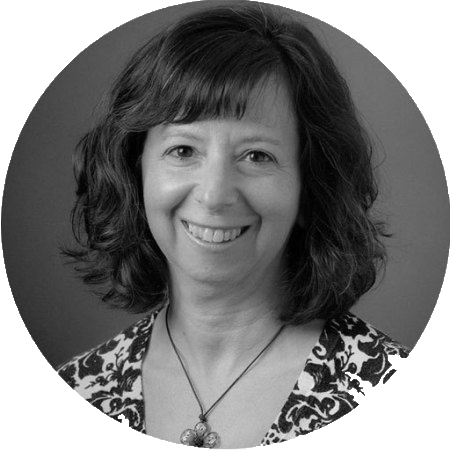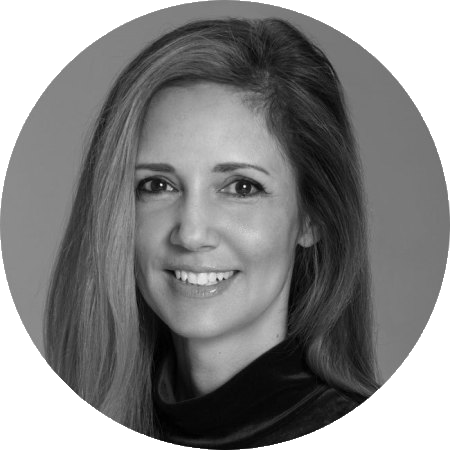In Miller’s words, “Successful women often find themselves pulled between two opposites: ‘Should I be tough or should I be nice? Should I push for change or should I play the game?’
It turns out that these aren’t either/or choices – we do much better when we begin to understand that there are benefits of doing both/and. This is especially important for high-powered women working in the male-dominated field of elite trial lawyers.”
Kim Dougherty, outgoing president of the National Women Trial Lawyers and Lisa Blue, incoming president of the National Trial Lawyers, opened the floor by discussing the importance of supporting emerging women leaders in the trial bar. Blue said the key to doing that is based on relationships forged between established women leaders and the next generation.
The forum invited both senior legal professionals and emerging leaders to provide individual perspectives on their experiences in law, in addition to sharing tips for other women in the legal field.
Only about 200 of the 1,000 attendees at the summit were women, according to Miller, who also served as the keynote speaker and serves on the National Trial Lawyers Executive Committee.
“The fact that our inaugural event attracted more than 25% of all the women trial lawyers in attendance – and that attendees represented every level of career seniority – tells us that we have identified both an interest and a need for this type of programming,” Miller said.
Miller, who – in addition to being a high-powered litigator – is also a certified leadership coach and an adjunct professor of negotiation, gave a keynote address on the importance of stepping into positions of power with authenticity and compassion. She then guided the forum attendees through a facilitated workshop focused on harnessing the benefits of adopting a“both/and” mindset. The material was presented through an emerging area of study called “polarities,” which helps leaders to identify and integrate opposite qualities that actually need each other to thrive. The conversation was organized into four of these “polarities,” including:
How can you communicate directly and honestly in a way that builds trust and respect?
How can you navigate the system successfully while being a pioneer of change?
How do you promote yourself and maximize your own skills and opportunities while also building a scalable and supportive team?
How do you allocate your time and energy to be able to succeed at work and take care of yourself and others at home?
Laura Yaeger, Kim Dougherty, Betsy Miller, Hali Marsocci and Channa Lloyd. Five of the six facilitators of the Women’s Leadership Forum. Photo by Andrea Sarcos.
Each attendee had the chance to discuss the polarities, unpacking how they play out in a modern society where women simultaneously inhabit many roles — lawyer, mother, wife and more. Excitement was palpable, as each individual courageously shared their personal experiences of struggle and success.
We asked six leaders from the forum about lessons learned while working in the legal profession. Here’s what they shared:
Betsy Miller, Washington, D.C.
Co-chair of the Women's Leadership Forum, Member of National Trial Lawyers Civil Plaintiff Executive Committee, Co-chair of Cohen Milstein Sellers and Toll’s Public Client Practice, Certified Leadership Coach
“Strength is not just about power. It is about courage, and it is about being forgiving enough of yourself and of other people that you can go out into the world, give it your best shot, and stay curious about what you learn from those experiences. That isn’t easy to do in a profession that rewards winning and being right, so I am working to shift the culture of the legal profession. We must value the importance of continuing to learn while also rewarding achievement and expertise. The science is clear – effective leadership does not exist without emotional intelligence and a resilient, growth mindset. These are necessary ingredients for anyone seeking to have long-lasting impact.”
“I am empowered in the workplace when I show up as authentic and grounded, because that's how I know that I can be my best self, even when I make mistakes. And in that mode, I'm able to be present for what people need to tell me. I can internalize feedback and I can give candid feedback without apologies and without awkwardness.”
Kim Dougherty, Boston, Massachusetts
President of the National Women Trial Lawyers Association
“A lot of the people we represent tend to be primarily women who are suffering from a drug or a device. In my cases, sexual assault primarily affects women. It's an honor to represent people in those ways, but it's also our responsibility to give back to help other women learn the ropes, to become successful and be able to make the cultural changes that we need going into the future.”
“It came up quite a few times during the session that it's a lot easier for us to advocate for others, go to bat for others and be strong and honest when it comes to helping others. But we really need to start looking at doing the same things for ourselves, in order for us to truly meet the success level that we’re capable of.”
“I welcome other women to mentor each other and to be there for each other and help each other to get to where they need to be. Having allies, male and female, is critically important to becoming successful.”
Laura Yeager, Tampa/St. Petersburg, Florida
Founder of Yaeger Law, PLLC
“There have been plenty of women that have broken the glass ceiling, but we walk a fine tightrope. We do have to work twice as hard to get there. But one of the things women are not so good at is self-promotion. And we have to learn how to go out there and be promoters of ourselves, or get our male allies or our women allies to amplify us, support us and help us along because it is a tougher road.”
“One: surround yourself with other women that don't have sharp elbows. Meaning that they will welcome you in and help you up the ladder. You've got to find men that will help you do that, too."
"The other thing is: don't sit in your office and think that if you work the hardest it's going to be noticed, because you really have to go out there and say, while I'm working hard, this is what I'm producing, and you've got to brag about it. We would much rather say 'I didn't do it, we did it, the group did it, this team did it.’ But sometimes you've got to say, 'I've done it'.”
Channa Lloyd, Orlando, Florida
Managing Partner, The Cochran Firm
“Women bring a different perspective to the law. Clients need that, cases need that. Women have a unique way of looking at things that can help with resolutions. That's essential to crafting a proper case and giving clients their best and most zealous advocacy."
"I think there is still some bias built in the system. I think women still have to work twice as hard to be half as good. That impedes, a little bit, on what you would be doing normally or how your work would be received. But I do think that those struggles are diminishing over time."
"As people become more aware of their own personal bias and their implicit bias, I find that people are actively making changes with the way they promote women and the way they view women's work by understanding that effort. And so I think that that's changing, and it’s important.”
Hali Marsocci, West Palm Beach, Florida
Associate Attorney, Romano Law Group
“If you have a critique of another woman, tell her in private, don't tell her in public. Be supportive of one another everywhere you are. Women need to stick together, especially in this day and age.”
“The biggest challenge is balancing home life with work life. So I think for other women in the same situation, where you have children at home but you also have a demanding career, is to find the balance that your children are okay without you for a little bit. You have to trust other people, but you still need to be involved. Sometimes, work can go on hold to make sure you're present in your children's lives.
Finding that balance and letting yourself know that everybody can live without you for a certain amount of time — I still work on it every single day.”
Tonya Parker, Dallas, Texas
Judge of the 116th Civil District Court in Dallas County, Texas
“It’s a privilege [to be a woman in law], particularly during this time period where so many women are using their voices to speak out about things that we never have spoken out about or in support of. Being in a position of leadership, you get to model for other people what they can become and what they can do.”
“I think a lot of times we fall into positions that are natural for us to fall into: support roles, writing briefs, staying back at the office while someone else goes over to the courthouse to argue the things that we've written. We have to resist the temptation to do that. We have to step forward and seek our place in the light and make sure that we have speaking roles in the courtroom.
For 50% of our profession to be female, and yet still in a civil court, I don't see those numbers reflected in the people who get to argue. That's a problem. So we need to do more. And I can't blame it all on our male colleagues. A lot of it is us placing limitations on ourselves. And so we've got to get ourselves in the position where we step into the light and embrace those opportunities and don't shy away from them.”


